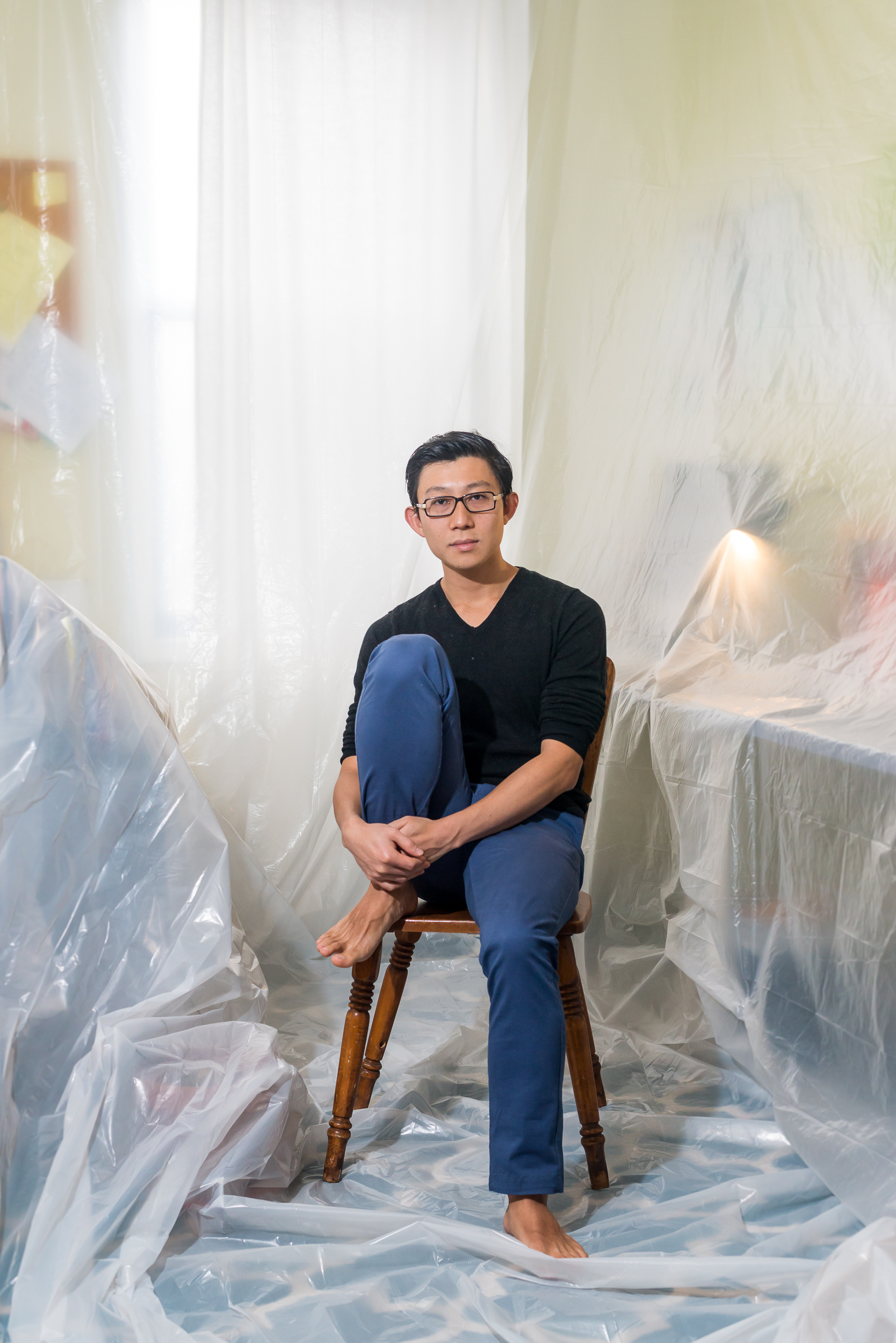
I am a trained playwright and self-taught director and producer. My plays are poetic, intensely personal and steeped in stark, psychological realities that stem from my visceral experiences growing up in a poor, North Korean, immigrant household in Santiago, Chile during Pinochet’s military dictatorship.
I discovered my voice journaling in the fifth grade. My journal became the only safe space where I could express myself. A few years later, theater taught me how to wear a mask that allowed me to be heard and seen. Since then, I’ve worked as a playwright, director, and cultural organizer in order to live in my skin. I’m actively healing from complex PTSD; if I don’t do this work, my memory fades into darkness. The way memories manifest in my plays is my way of processing the traumatic events of my past and inherited, intergenerational trauma.
disOriented (2011) chronicled how my North Korean family’s matrilineage was permanently severed from land by war, through a non-linear, family drama intertwined with post-modern interpretations of Korean fan dancing; TALA (2015) was a surreal, interdisciplinary performance that interweaved my childhood in Chile, my immigrant experience post-9/11, and the history of Chile’s CIA-backed, military coup of Sept. 11th, 1973; PILLOWTALK (2018) was a gay bedroom drama inspired by my marriage that explored internalized racism and homophobia as a balletic pas de deux. I’m currently editing a "streamplay" production of NERO, a reflection of my struggles reconciling truth, memory and history, as a new citizen of the American Empire.
Directing my work, I collaborate with diverse artists from different cultures, working in different disciplines, to theatricalize invisible systems of oppression through text, performance, movement, music, visual and sound design. While developing my work, I organize my local community to collectively problem-solve social issues addressed in my plays. These conversations fuel my developmental process, which lasts several years, as theater-making becomes a catalyst for advancing social change.
My process is experimental; each play I create has a distinct dramaturgical form to stage the questions I am investigating and through performance, my work illuminates the architecture of human emotions on-stage. My community-based work, on the other hand, is a flexible social art-practice responsive to the desires of my community. Over time, my playwriting becomes the sum-total through which I integrate my artistic and community-based practices into one.
Self-production was a necessity when I started my career. As an immigrant with no Greencard, I had no access to professional opportunities to pursue my writing. I needed to learn how to write, direct, and self-produce my work if I wanted to see my plays on-stage. Systemic racism and aesthetic biases were also barriers to my career path; so as an artist, my work is deeply invested in changing the systems that have restricted my work.
I came out of the closet at the age of 27. The plays I’ve created since then are about living in my truth as an artist, no matter the social repercussions.
Photography by Tahir Karmali